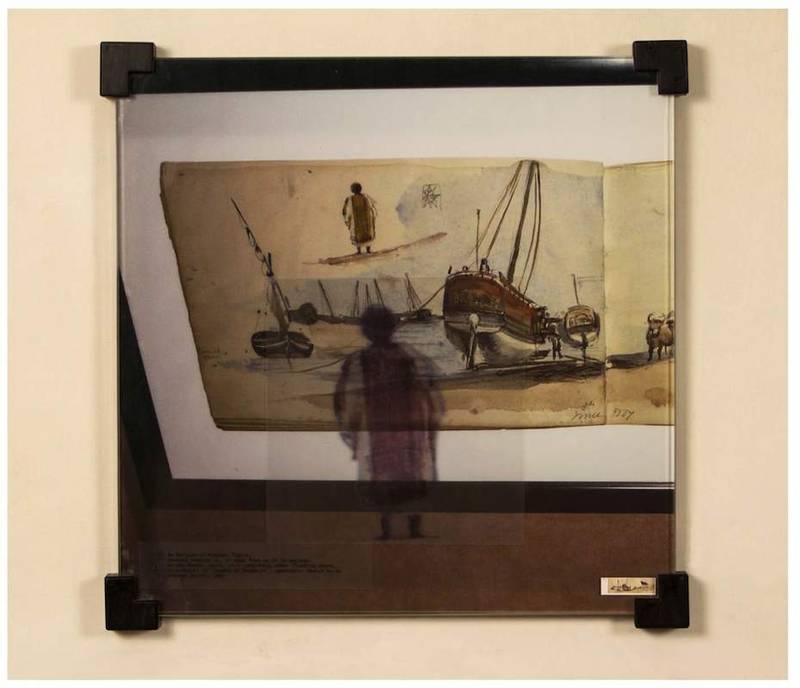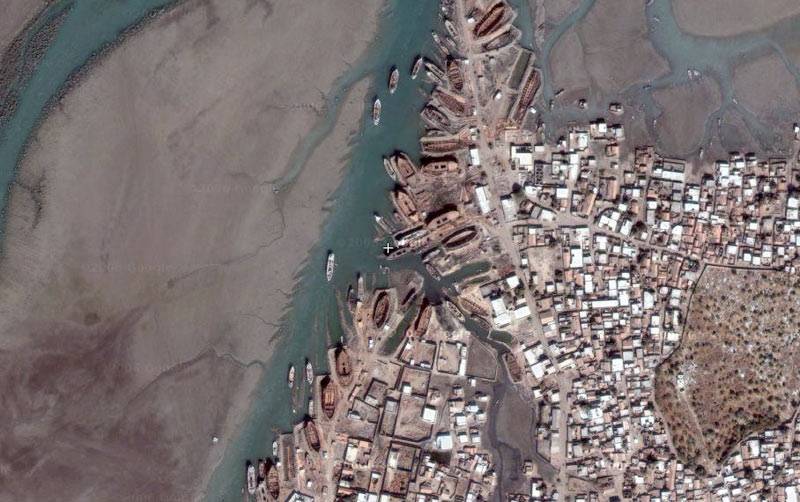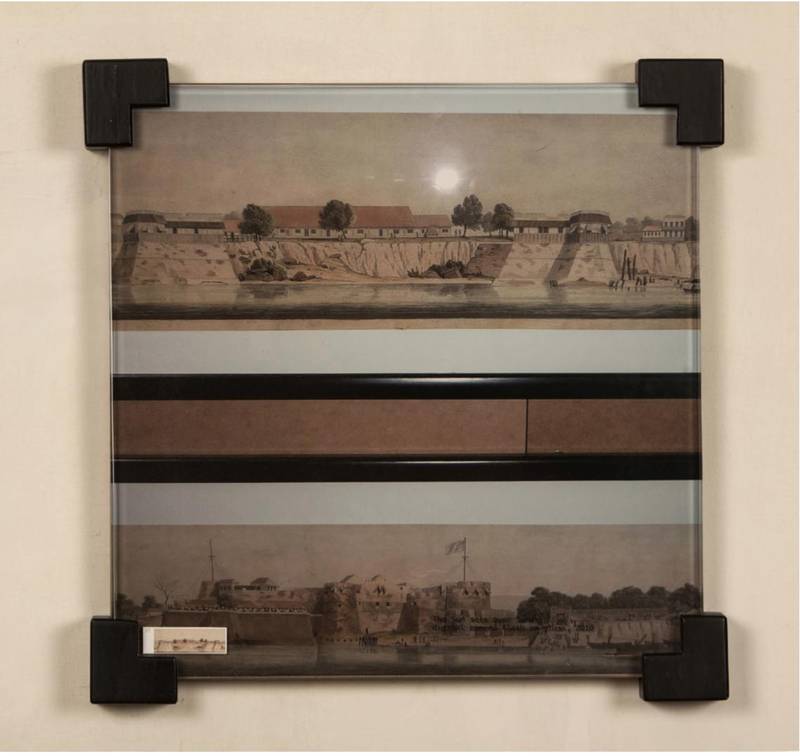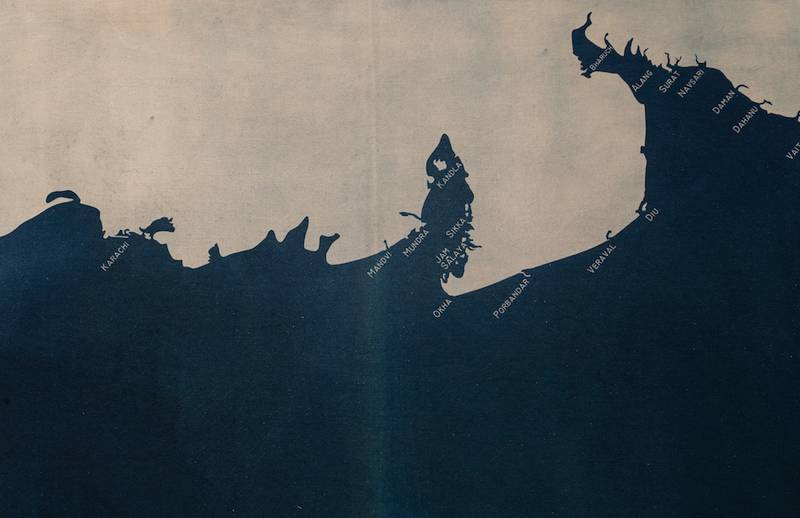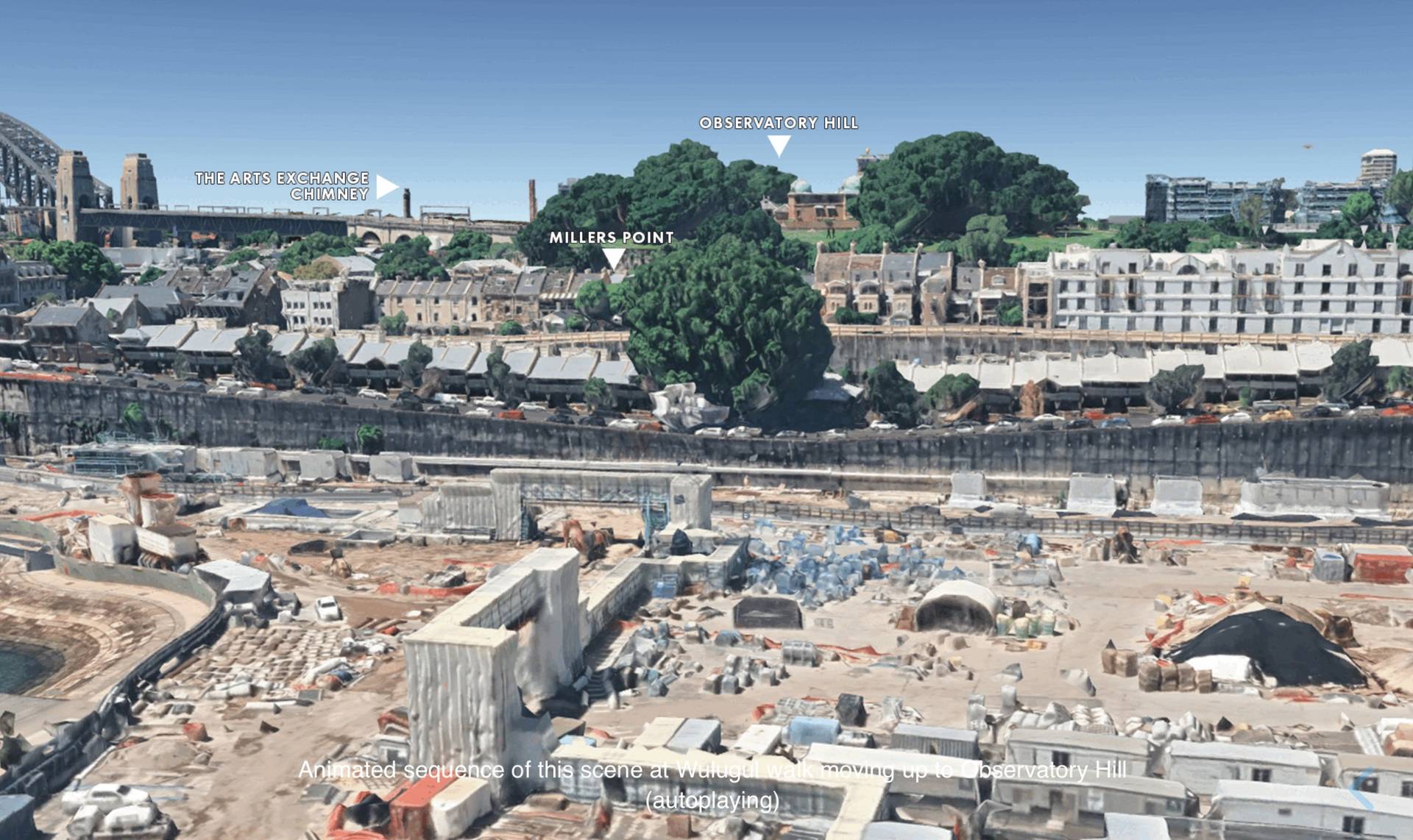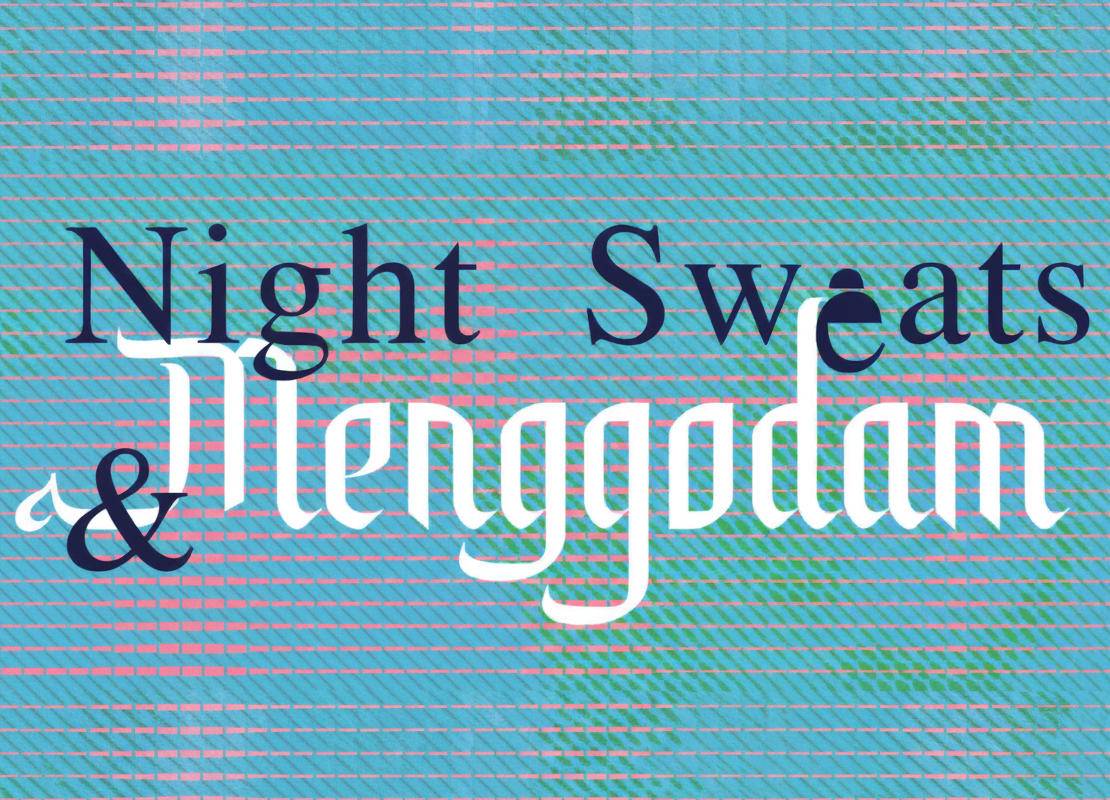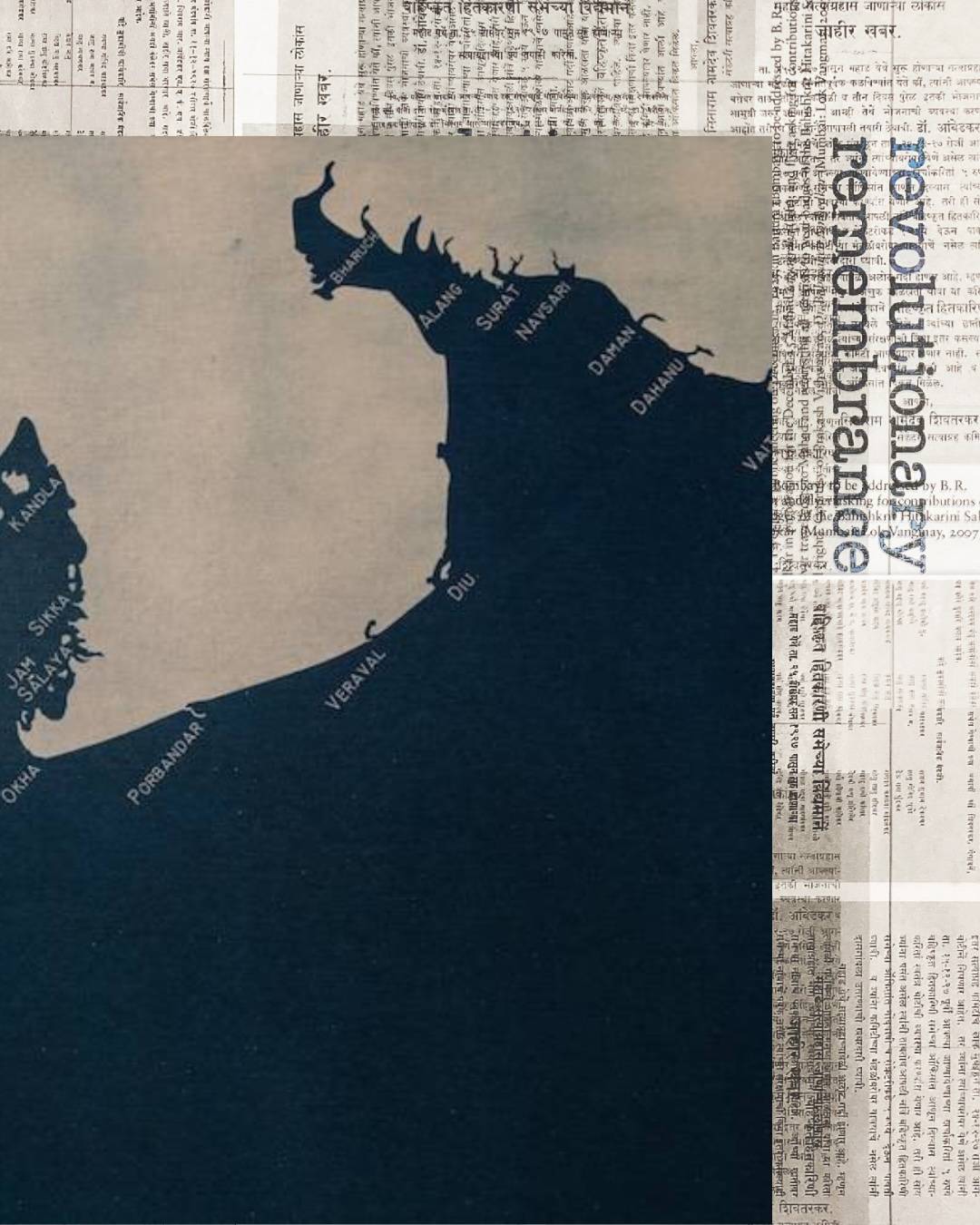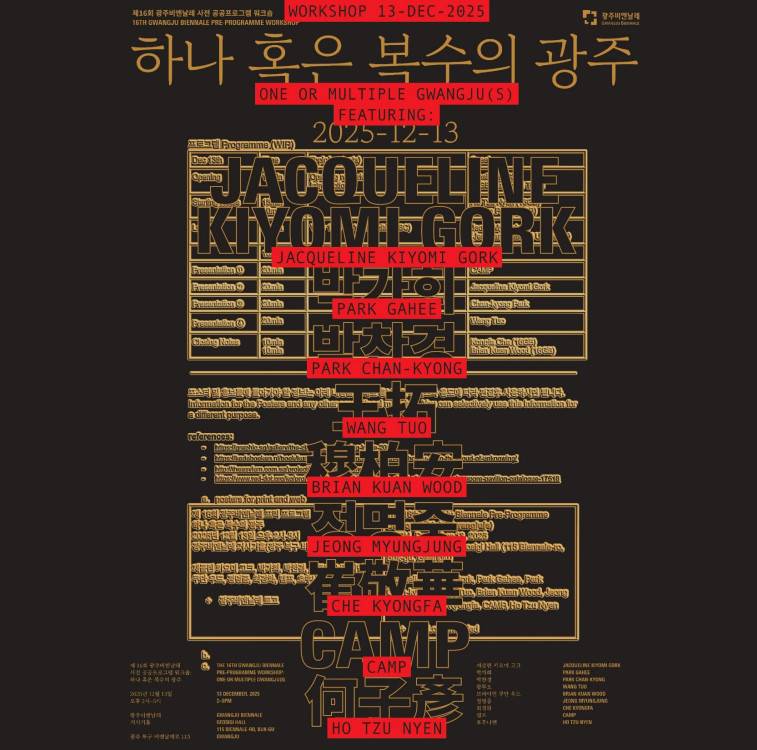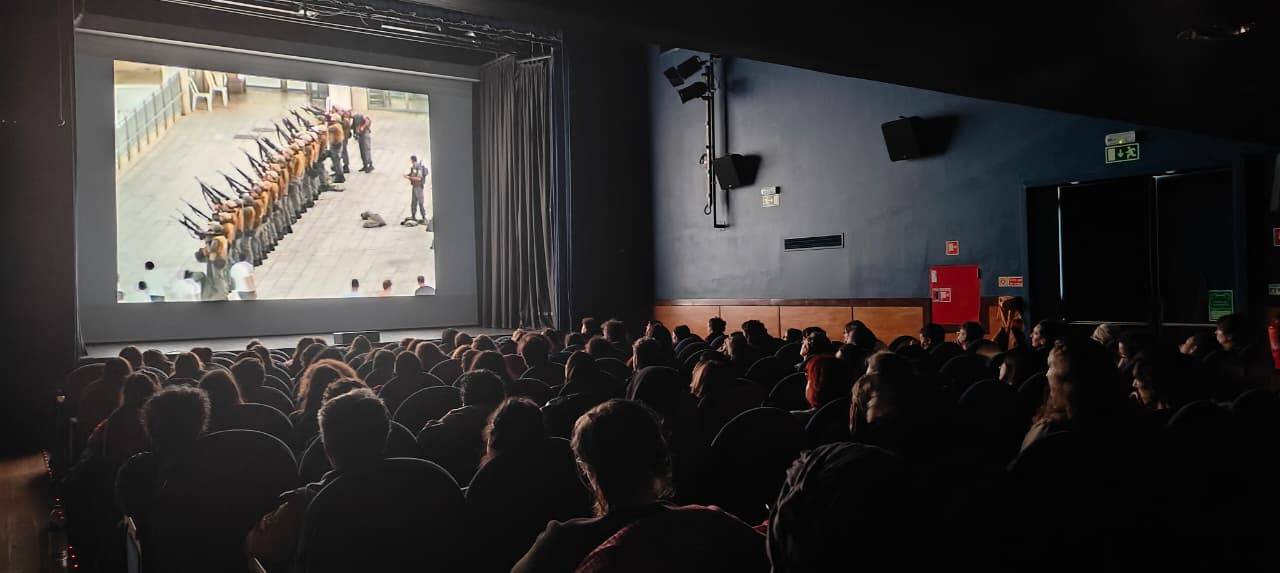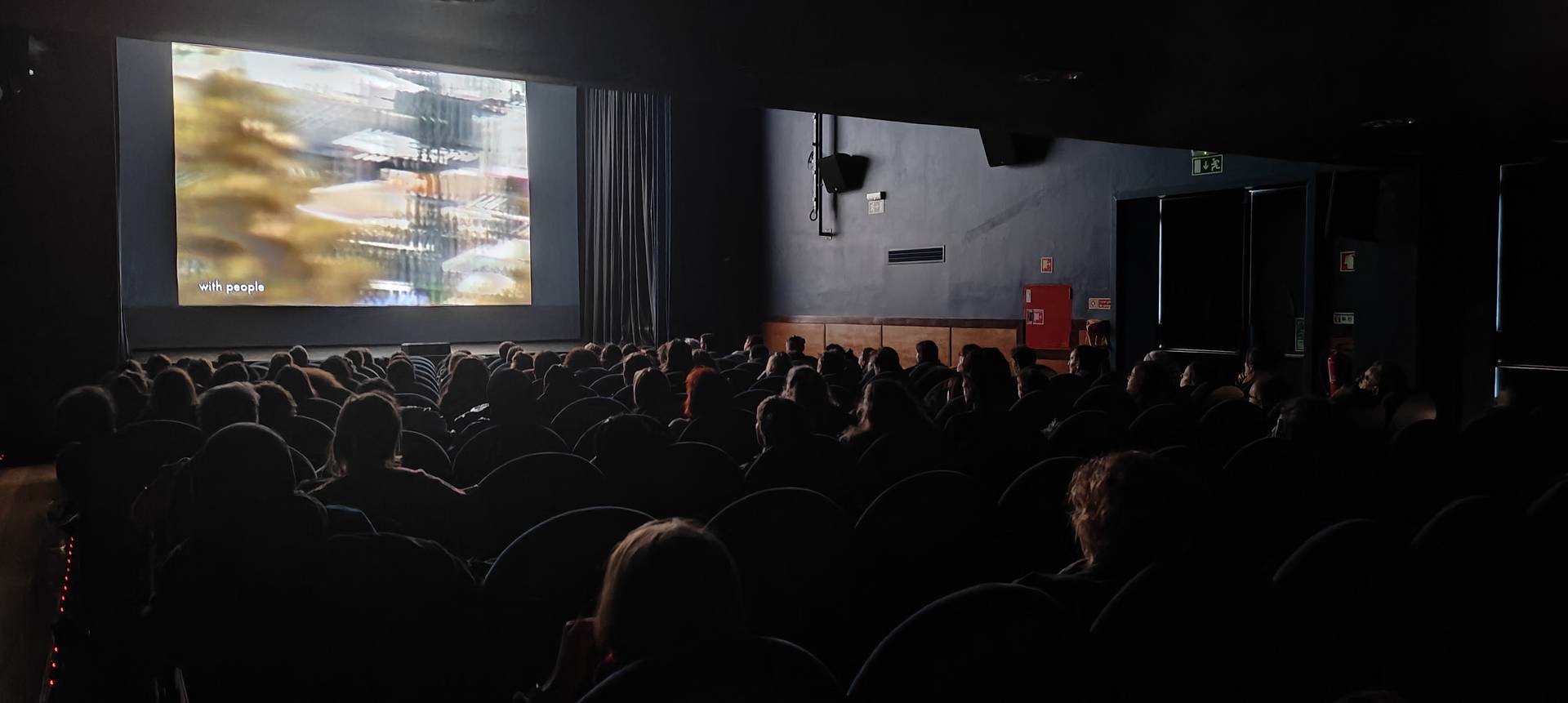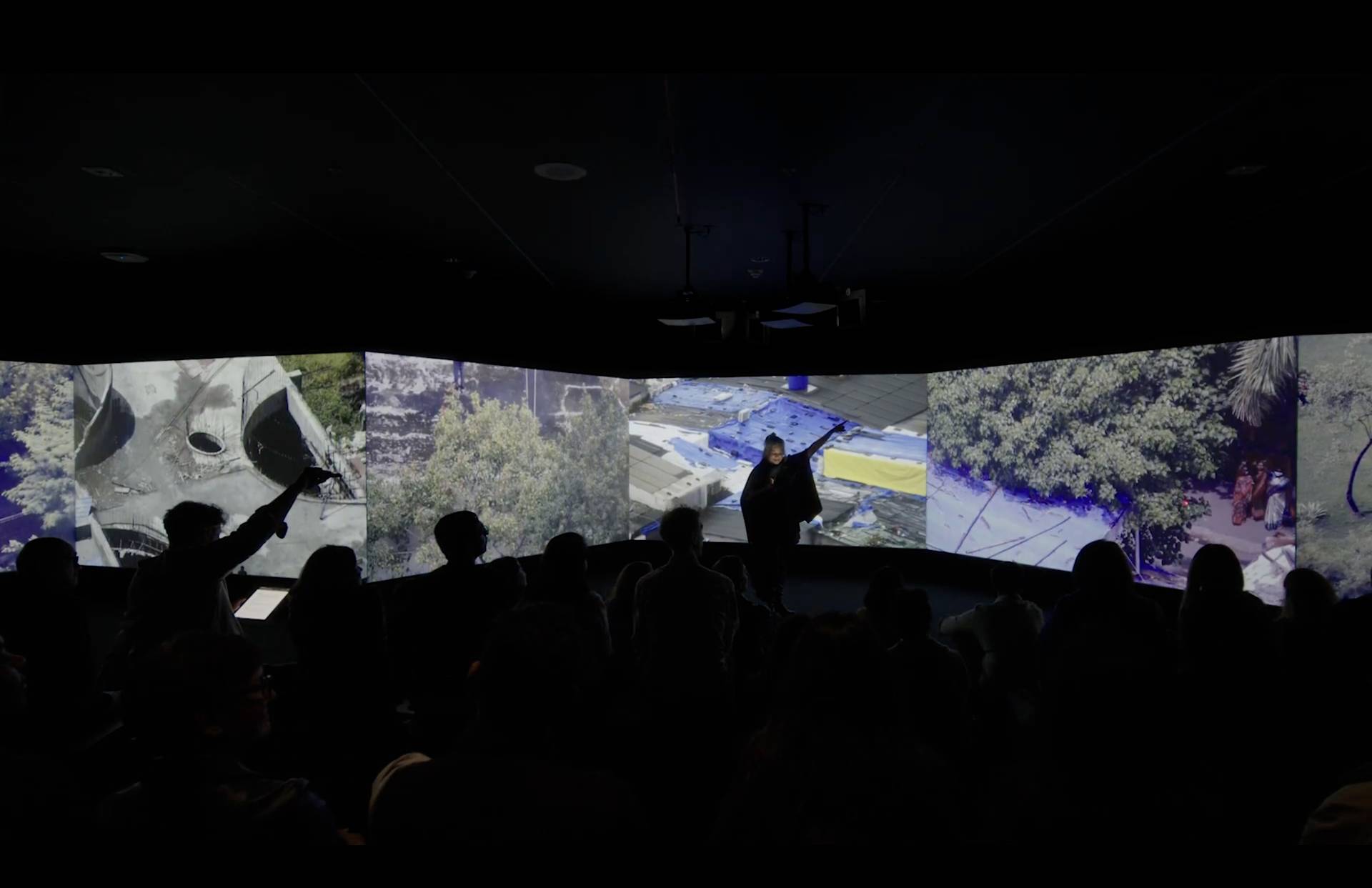
The Annotated "Gujarat and the Sea" Exhibition
Jan. 12, 2011 - Jan. 28, 2011
Lalit Kala Academy, New Delhi
At Against All Odds:
Contemporary Responses to the Historiography of Archives and Museums in India
curated by Arshiya Lokhandwala
In October 2010, a major conference and exhibition was organised in
the port town of Mandvi in Kutch. The exhibition 'Gujarat and the Sea'
was, as its curator puts it, "opportunistic". It made use of
opportunities to access UK-based archives, to bring about 80 maps,
photographs, and objects, mostly printed as high-quality digital reproductions, to Jainpuri in Mandvi. These materials were sourced
mainly from the British Library collection, the UK National Maritime
Museum, and private collections both in Gujarat and abroad. There is a
specific poignancy to the material as it is exhibited: the reproductions
are carefully printed on archival paper, but only have licensed
permission to be shown over one three month period.
A three-day international conference on 'Gujarat and the Sea' also
opened at the same time in the same Mandvi venue. Unlike the conference
however, the exhibition has since travelled to other parts of Gujarat: to the National Institute of Design in Ahmedabad in November, and to the Science Centre in
Surat in December. For us, this exhibition already constitutes a
noteworthy contemporary response to the "historiography of the Museum and the Archive"
of this history, in Gujarat.
One question it raises directly is, what does it take to be
"opportunistic", in this way? Who can be opportunistic? This question
has implications for exhibition practices, and the idea of what
exhibitions can be. And the question for art perhaps is, how can such
opportunity, access to faraway image archives in this case, be further
translated or traded, and in which spirit, style, or medium?
GATS is organised by a well-known Gujarati cultural group, with a
British curator, Kutch-based NGO partner, and financial support from
local government and multinational interests. These assets were
leveraged, not without internal frictions and differing interests, to
bring some images "back" to within a stone's throw of contemporary
boatbuilding and seafaring activity on Mandvi's Bandar road. Exhibitions
are not typically about knowledge, and so it is not a "knowledge gap"
that separates this exhibition from the ships and seafarers around the
corner. It is perhaps a more primal question, of what can be seen,
heard, felt, or alluded to and in which kind of marriage between form
and context. In what practical manner can the violence, smuggling,
buggery, foreignness, local pride, predominantly Muslim
seafaring class, and many other known aspects of Gujarat's maritime
history be "exhibited", and be received by audiences?
Some hints are there in the materials themselves. Many maps and
images in the GATS exhibition are layered with past annotations, claims,
borrowings, translations: notes in Gujarati on english pilot's maps,
english scrawls on Gujarati lists, photos taken with or without
"permission", and often an in-built indifference to or obscuring of
sources. The exhibition freezes such running threads into one
"appearance", lighting up some routes, paths by which this material may
be felt or appreciated, while remaining shy of others.
CAMP is proposing here to continue this route-finding effort, by
annotating, cropping, layering, and extending "Gujarat and the Sea". At
a certain distance from Gujarat, with the help of historians and
amateurs working in the field, and through our own work on contemporary
Gujarati seafaring activity as far-flung as Somalia and Iraq, we believe
that many more layers of this story can unfold. This is then the
exhibition as "relay", which in the best case leads to more responses
from other "parties", so that exhibitions like these mark a
"shubh-aarambh", a providential beginning, and not an end, of debates
around their subjects.
The Delhi exhibition is open upto January 27, 2011.
Design and Production by Samir Parker
with thanks to Edward Simpson, Aparna Kapadia and Iyesha Geeth Abbas.


